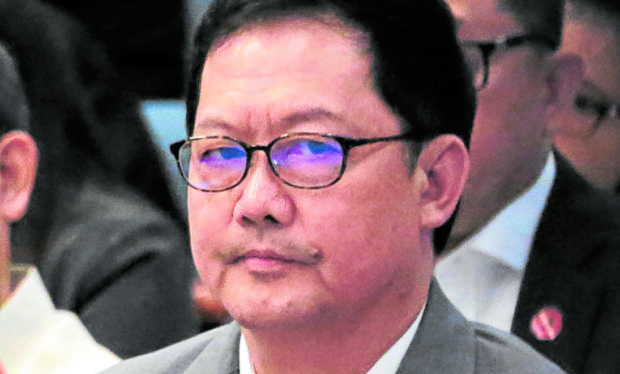MANILA, Philippines — The Department of Justice (DOJ) on Sunday said it will direct the National Bureau of Investigation to determine the criminal liability of 154 policemen involved in antidrug operations that led to the deaths of 52 suspects.
“The DOJ noted that based on the facts gathered by the PNP (Philippine National Police) Internal Affairs Service, the police officers involved in these cases were not only administratively liable. The existing evidence pointed to their possible criminal liability as well,” Justice Secretary Menardo Guevarra told reporters.
“The DOJ thus informed the PNP that these cases will be endorsed to the NBI for case buildup and filing of criminal complaints if warranted by the evidence. The NBI and the PNP agreed to coordinate with each other in this endeavor,” he also said.
Guevarra said he discussed with PNP chief Gen. Guillermo Eleazar last Friday a report on the 52 cases that the DOJ completed on Aug. 19 and submitted to Malacañang early last month.
Government’s inquiry
The DOJ will meet with the NBI on Tuesday to discuss the investigation, including the deadline.
Guevarra has been at the forefront of the government’s inquiry into its own drug war, having already reported twice to the United Nations Human Rights Council (UNHRC) about the progress of the inquiry on his watch, amid international pressure against the drug war.
In February this year, Guevarra reported to the council that half of the police operations reviewed by his agency “failed to follow standard protocols pertaining to coordination with other agencies and the processing of the crime scene.”
The Commission on Human Rights (CHR) came out with its own report in March which found that the PNP used “excess[ive], unreasonable” force and had “intent to kill” suspects in its anti-drug operations in the past four years.
But in May, President Rodrigo Duterte said, invoking national security, that records on the drug war would be kept confidential.
His pronouncement contradicted a Supreme Court decision in 2018 which ruled that drug war records had no bearing on national security.
Yet by next month the DOJ began to look into the drug war cases that the NBI will now be tasked to investigate. The PNP acceded to the DOJ’s request to check police records on those operations.
On Sept. 15, the International Criminal Court approved an investigation into the Philippines’ drug war — a motion welcomed by families of drug war victims to whom Guevarra had also vowed legal assistance.
The following week, Mr. Duterte, in an address before the UN’s 76th General Assembly, said he had directed both the DOJ and PNP to hold accountable police officers who acted “beyond bounds” in the course of their operations. This was in contrast to his earlier assurances of support for these operations.
Guevarra said Mr. Duterte’s speech was a clear directive for government investigators to go deeper into the drug war.
Other cases
The justice chief, however, said his agency won’t publicly disclose the report it had submitted to the Palace.
“But we are informing the public of its contents, just as we did with the initial report,” Guevarra said, referring to his presentation to the UNHRC.
He said there are other pending cases on the drug war.
“The DOJ will also focus attention on the nearly 100 cases across the country which are either pending preliminary investigation or court trial, involving law enforcement agents charged with or accused of violating the law in connection with the war on drugs,” Guevarra said.
“The PNP and the DOJ are one in the belief that the war against drugs could be won without the use of excessive force and unnecessary loss of lives,” he added.
